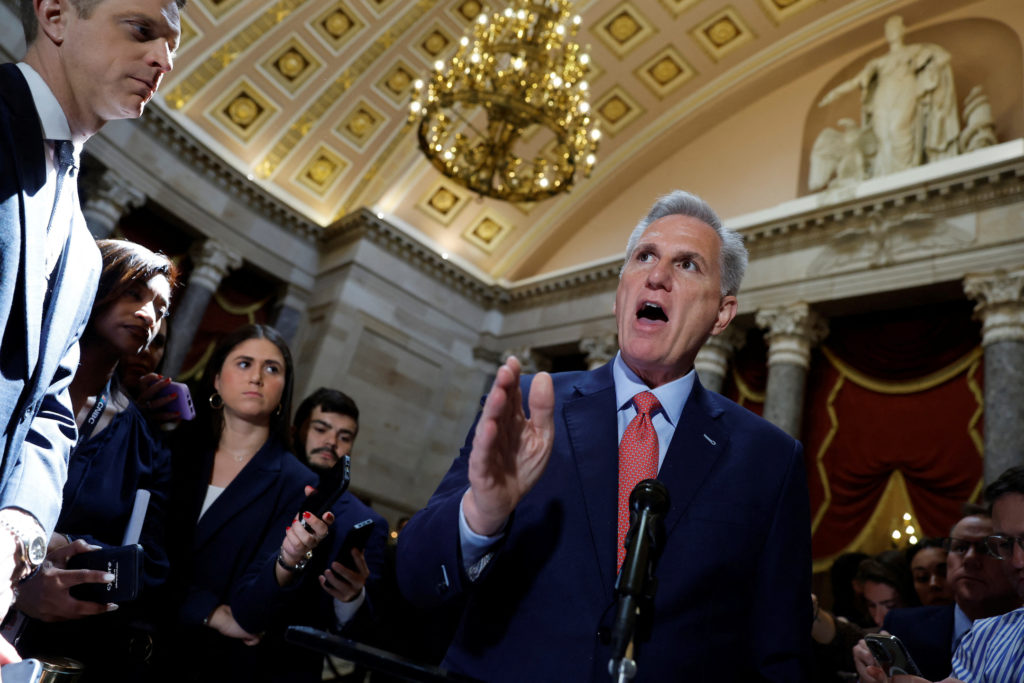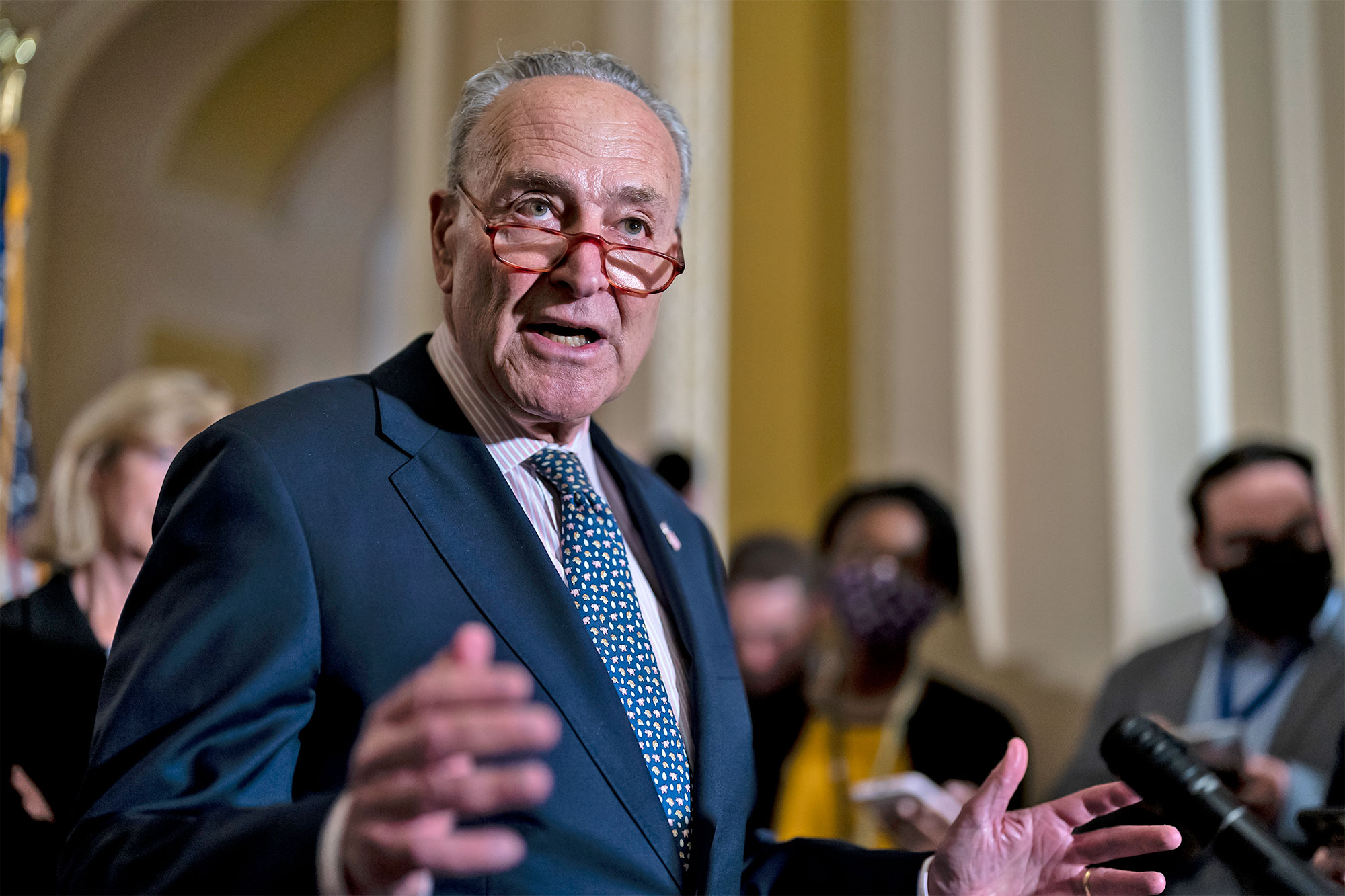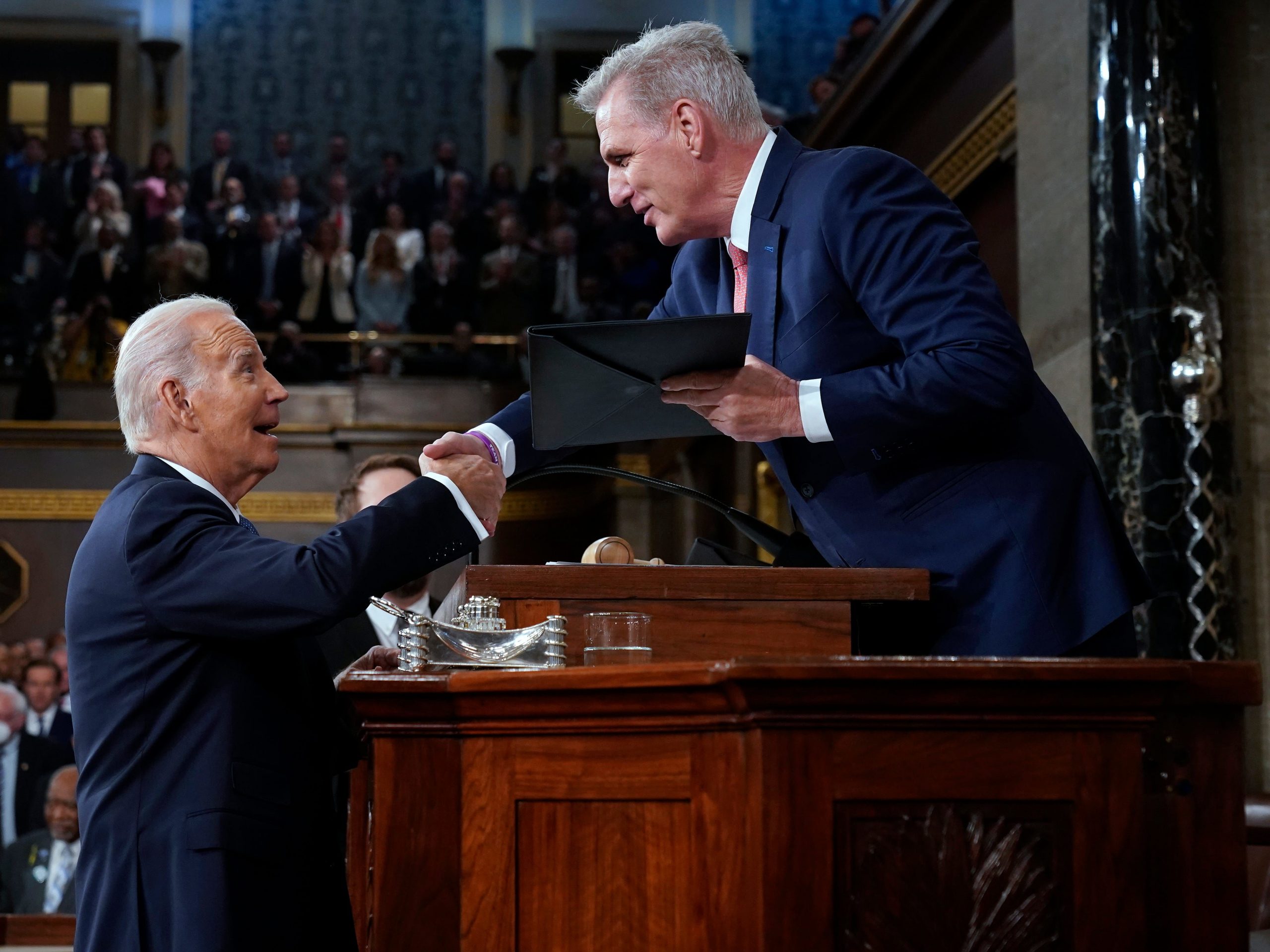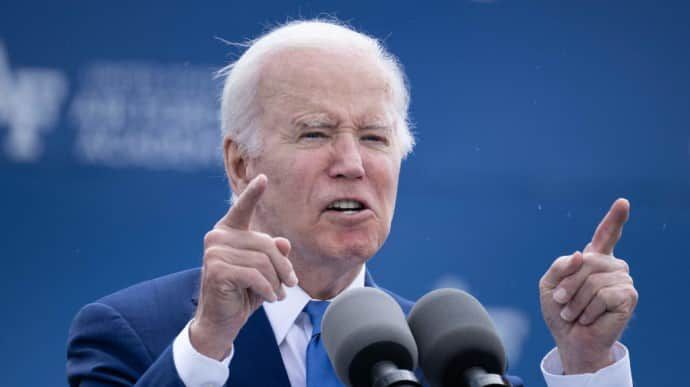A provisional agreement has been reached between President Biden and House Speaker Kevin McCarthy to elevate the debt ceiling, putting an end to a drawn-out stalemate that risked instigating a U.S. default.
The proposed settlement, once ratified, will extend the country’s borrowing limit for two years, effectively sidelining the contentious issue of America’s credit rating until the subsequent presidential election, as indicated by numerous reports.

Your go-to app for investment insights
The agreement also anticipates enforcing what McCarthy referred to as “historic” expenditure caps expected to remain for an identical duration.
This development occurs just ahead of an impending financial crunch, as the U.S. government is projected to exhaust its funds to settle all its dues. Treasury Secretary Janet Yellen suggested this could occur as soon as June 5.
The final details of the agreement
The final details of the agreement were hashed out during two phone conversations between Biden and McCarthy on Saturday. “Although there is still considerable work to be done, I am convinced that this preliminary agreement is deserving of the American people,” McCarthy stated late on Saturday.
Biden, in his remarks, described the agreement as a compromise, implying not every party would be fully satisfied.
He further mentioned that this significant progression curtails expenditure while safeguarding key programs for the working class and bolstering the economy for everyone.
However, Wall Street might not be able to breathe easy just yet. The leaders now face the challenging task of selling potentially contentious provisions to hesitant lawmakers on both ends of the political spectrum.
Notable apprehensions have been evident from both the conservative and liberal factions for several weeks. The focus now shifts to convincing respective sides to convert this agreement into law.
McCarthy divulged minimal details to journalists on Saturday, stating his priority was to consult his members first.
On Saturday, President Biden also communicated with Senate Majority leader Chuck Schumer (D-NY) and House Minority Leader Hakeem Jeffries (D-NY), two influential figures responsible for garnering Democratic votes in the coming days.

In a Saturday evening statement, Maya MacGuineas of the Committee for a Responsible Federal Budget noted that the agreement, once passed, “would represent the first major deficit-reducing budget settlement in nearly twelve years, signaling Washington’s serious intent to tackle our escalating national debt.”
One contentious subject addressed in the agreement, according to McCarthy, relates to the polarizing topic of work requirements for access to certain government schemes.
This issue is of particular sensitivity for both parties and remained a contentious point until the final stages. Progressive Democrats have emphasized this matter, arguing that any additional requirements will have minimal impact on the deficit and are unnecessarily harsh for the most vulnerable Americans.
On the contrary, conservative Republicans have called for more substantial spending cuts in recent months than those reportedly agreed upon in the final settlement. This leaves many of McCarthy’s most conservative members unlikely to endorse the bipartisan proposal in the upcoming days.
Members of the conservative Freedom Caucus have repeatedly criticized the provisions as information has surfaced, with Rep. Chip Roy (R-TX) recently stating it “doesn’t seem like a deal that I can support.”
Several aspects of the bill remain undisclosed. Speaker McCarthy acknowledged that certain parts of the bill are yet to be finalized but committed to unveiling the complete bill tomorrow, ahead of a probable vote in the House of Representatives on Wednesday.
Biden concluded, “this agreement is beneficial for the American people, as it averts a potentially catastrophic default that could have precipitated an economic recession, decimated retirement accounts, and resulted in the loss of millions of jobs.”
©traders-news.online










